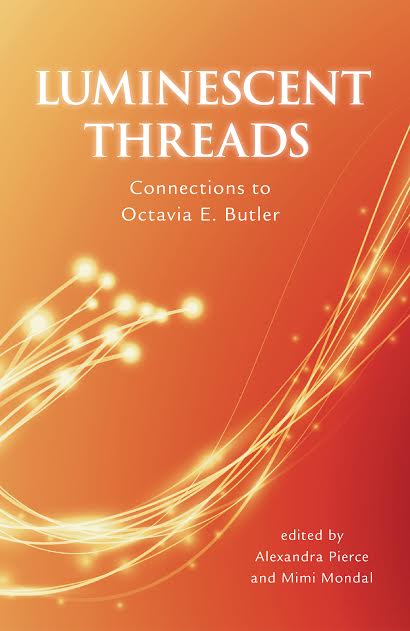My Superpower is a regular guest column on the Skiffy and Fanty blog where authors and creators tell us about one weird skill, neat trick, highly specialized cybernetic upgrade, or other superpower they have, and how it helped (or hindered!) their creative process as they built their project. Today we welcome Chris Caldwell.
I’ve always been fascinated by illusion and transformation; the concepts of changing a thing into something new, and something appearing to change but remaining the same, go hand in hand. My stories The Beekeeper’s Garden (Fiyah, Spring 2017) and Serving Fish (‘Fantastic Stories of the Imagination, People of Color Take Over’ Issue 2017) explicitly deal with illusion and transformation as they apply to the experiences of marginalized people. I am a skeptic who deeply wants to believe. I know the magician is palming the coin while still hoping she has conjured it from the ether.
My superpower is seeing through illusion. Not in a grandiose way, I don’t wave my hands to reveal that the handsome youth has really been a middle aged venture capitalist all along. I’ll irritate friends at the movies by figuring out plot twists long before I’m supposed to (“They’re the ghosts!” “I think he’s making this whole thing up!” “They’re really in modern times!”). I’ve used insight as a mental health worker to help people who are frustrated and feel unheard get to the bottom of what need they have that hasn’t been met. Throwing a surprise party for me is usually an exercise in futility. It isn’t infallible by any means. There are people and conditions that completely confound my insight, and days where maybe the moon has entered the wrong sphere and every observation I make falls flat. But for the most part, it’s served me well: allowing me to discern true friend from false, and helping others navigate closer to the shaky ground known as the Truth.
I’m so honored and humbled to have been invited to be a very small part of Luminescent Threads: Connections to Octavia E. Butler. Her work has been an immense part of my life, and I owe a huge debt of gratitude of the Carl Brandon Society and their Octavia E. Butler Scholarship, which was an enormous benefit to my own writing career. The table of contents has so many writers whose work I admire, whose presence has inspired me, whose words have struck me silent with awe. The book is filled with wonderful observations and memories from people who knew Octavia Butler and loved her, and those who did not and were still touched by her. It’s odd to speak of the work of a writer who valued humility, diligence, hard work and persistence so much as a sort of magic talisman, but inasmuch as Butler’s work has transformed my understanding, it is a sort of magic to me.
If I have an origin story, it’s probably because of Butler’s novel Kindred. Like all of her work, Kindred is remarkable. But for me, an aspect of the novel that transformed my perceptions is how she treats one of her minor characters. Sarah, an enslaved woman who works in the master’s house as a cook, deftly and completely turns the familiar house-slave narrative on its head. More than anything, this helped fifteen-year-old me understand how axes of oppression work, and how cleverly marginalized people are pitted against each other in service of the privileged. And once you begin to untangle a big lie, if you are patient and persistent, many smaller ones become apparent to you.
When I was invited by editors Alexandra Pierce and Mimi Mondal to write an open letter to my personal hero, Octavia Butler, I turned that power on myself. I dug deep to examine a bit of family history that was deeply painful and shameful to me. I talked to family members and did research and re-examined my own coming to peace with one of my ancestors, an oppressed woman who worked in collusion with the racist power structure of the US South to oppress others. It’s easy to tell yourself, “I would never…” But when every choice you have is a bad one, and every road leads to destruction, it’s hard to blame someone for choosing something that allows them to survive, even if that choice is neither the kindest, nor most courageous. My ancestor used trickery and deceit to convince poor black people in the South new to emancipation that share-cropping was a viable life for them. But in turn, she was used by unscrupulous planters, eager to continue their legacy of human suffering and degradation in search of profit. I know now who the much deeper shame belongs to. While writing about this history, and confronting my own feelings, I had to also confront many of my own moral failings. My moments of weakness where I chose poorly and lied to myself about it. I can only resolve to do better, and move forward with a clearer understanding of the illusions I spin around myself. I can only work to truly transform.
Christopher Caldwell is a black American from Los Angeles with heavy family ties to Louisiana, and is interested in exploring questions of race, gender, and sexuality through fiction. He attended the Clarion West Workshop in 2007 and received the Octavia E. Butler Scholarship that same year.
Chris is a contributor to Twelfth Planet Press’ upcoming collection of essays and letters dedicated to Science Fiction pioneer Octavia Butler, titled Luminescent Threads. Edited by award-winning Senior Editor Alexandra Pierce and Editor Mimi Mondal, Luminescent Threads launched Aug. 15 and is available from the Twelfth Planet Press website.
http://www.twelfthplanetpress.com/products/ebooks/luminescent-threads
Twitter: @12thPlanetPress










0 Responses